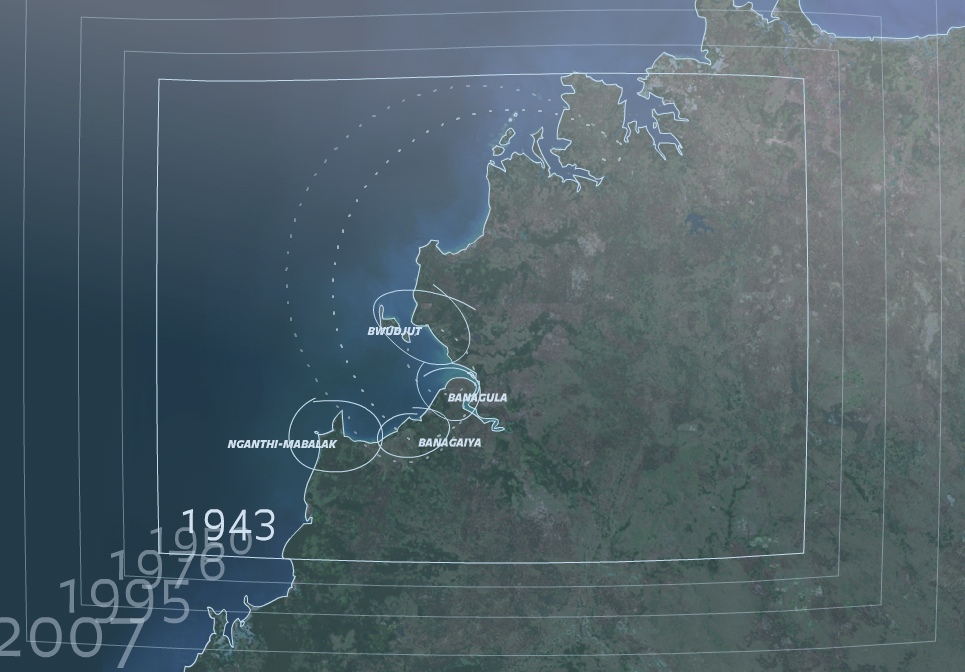They understand, as Ann Stoler noted, that archives are not sites of knowledge retrieval but of knowledge production; or, in the act of retrieving information from archives the users of archives reproduce and conserve state power
- Elizabeth Povinelli, Author's Statement
Alternative views of Digital Futures project data:
 All info and conversations from this project page
All info and conversations from this project page
http://vectors.usc.edu/xml/projects/digital_futures_v1.xml
 RSS feed of the conversations from this project page
RSS feed of the conversations from this project page
http://vectors.usc.edu/rss/project.rss.php?project=90
 List of project data XML feeds that drive Digital Futures
List of project data XML feeds that drive Digital Futures
http://vectors.usc.edu/issues/06_issue/povinelli/xml/index.rdf
http://vectors.usc.edu/xml/projects/digital_futures_v1.xml
http://vectors.usc.edu/rss/project.rss.php?project=90
http://vectors.usc.edu/issues/06_issue/povinelli/xml/index.rdf
Author's Statement
This project uses the life of Ruby Yarrowin to reflect on the building, managing, and celebration of indigenous digital archives in late liberalism. The project began as a conversation with Ruby about how to transfer the archive, that I had accumulated over the last twenty-four years, to her family who lived at Belyuen, a small indigenous community in northwestern Australia. The project is inspired by recent attempts to embed alternative modes of social life in the operating systems of digital archives. These efforts operate in the shadow of Foucault and Derrida's critical engagement with the western state archive. They understand, as Ann Stoler noted, that archives are not sites of knowledge retrieval but of knowledge production; or, in the act of retrieving information from archives the users of archives reproduce and conserve state power. Much of the focus of this work has focused on how to encode alternative modes of circulation, access, and control of information into digital archives. Taking such critiques on board consciously or not, the authors of these digital archives assume—and foreground as part of the interaction protocol of the site—that the production and circulation of knowledge consolidates power—that power has a formation—is en-formed. And so they attempt to foreground and encode as protocols the competing organizations of knowledge and power in the very operation of system of knowledge circulation and access.
This project also foregrounds the issue of power. But it asks what a postcolonial digital archive becomes if, instead of information, circulation, and access, we interrogate it from the perspective of socialities of obligation, responsibility and attachment. What is not asked when we consider the archive from the perspective of knowledge production, circulation, and access? How are these problems imposed by the vary ways that code and software depend of stranger sociality whether that stranger is considered an individual or a set of cultural rules and protocols? Is it necessary to agree to this stranger sociality in order to play digitally? And if so, what forms of sociality are being extended even as we are allowed to provide different cultural rules and protocols? And finally, how do the various interfaces of the archive—the code, software, and screen—interact in such a way that the user "feels" social difference without experiencing the transformations of the material sociology of knowledge occurring?
— Elizabeth Povinelli, May 19th, 2008


